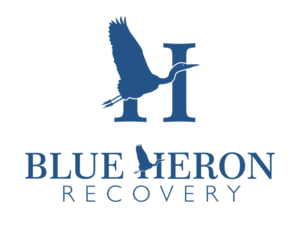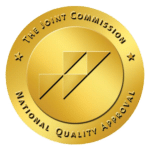Cognitive behavioral therapy, or CBT, is an excellent option for addiction treatment as it addresses addiction from the ground up. This form of therapy is designed to help individuals learn the root causes of their addictions to learn coping skills that can help them resist urges and stay on their path toward sobriety. It is important to understand what this therapy involves and how it may help you or a loved one who may be struggling with an addiction.
What Is Cognitive Behavioral Therapy?
Cognitive behavioral therapy is a specific type of therapy that helps individuals overcome addiction by addressing underlying psychological disorders. It is extremely common for individuals struggling with substance use disorders to have co-occurring mental health conditions. There is a strong belief that an individual has the best chance of overcoming their addiction so long as they can address the root cause of the addiction itself. For this reason, managing the anxiety, depression, or other psychological disorders that patients who struggle with addictions may be dealing with can help to provide them with the best chances of making healthier decisions when it comes to coping with any triggers.
Cognitive behavioral therapy is a therapeutic intervention that is based on three specific core principles. The first principle is that psychological problems that patients experience are based, either in full or in part, on having unhelpful or faulty ways of thinking. Additionally, these psychological problems are based on learned patterns of unhealthy or unhelpful behaviors. Finally, individuals who struggle with these mental health disorders can learn healthy ways of coping with their triggers and symptoms to live happier and productive lives.
Cognitive behavioral therapy expands on these principles by working toward helping individuals who struggle with addiction and co-occurring mental health disorders change their negative behaviors.
Common Conditions Addressed With Cognitive Behavioral Therapy
CBT is an exceptionally effective way to help individuals struggling with drug and alcohol use disorders. In addition, this treatment helps to address an array of problems, including:
- Eating disorders
- Obsessive-compulsive disorders
- Social phobias
- Post-traumatic stress disorders
- Depression
- Anxiety disorders
- Marital issues
CBT combines multiple techniques to help individuals overcome their addictions and other problems simultaneously.
Approaches Used for Cognitive Behavioral Therapy
During cognitive behavioral therapy, patients will engage in various techniques for learning how to respond to various circumstances. These techniques include the following:
- Operant conditioning: This specific technique focuses on helping patients understand the consequences of their decisions. Patients generally learn the consequences of both unhealthy decisions and healthy decisions.
- Classical conditioning: This technique focuses on learning how to change behaviors based on environmental stimuli. This generally focuses on reinforcing good decisions with positive reinforcement.
The primary focus of CBT is to help patients learn that there are safer and healthier ways to deal with mental health triggers than to turn to substance use. This therapy helps bring to light the negative consequences that come from making bad decisions and the positive consequences of making good and healthy decisions. With more knowledge and tools, patients can successfully fend off any cravings and prevent relapse.
How Cognitive Behavioral Therapy Is Used
Cognitive behavioral therapy is used in several ways to treat substance use disorders. These include:
Cognitive Management Programs
Cognitive management is a form of therapy that involves rewarding individuals for making positive changes. The use of positive reinforcement is designed to help prevent individuals from turning back to substance use by continually providing rewards for positive decisions.
In some cases, patients may be provided vouchers or other prizes to help them continue on a path toward sobriety. Although there will come a time when the patient will no longer receive physical reinforcements, they will continue forward with the belief that their actions are good and healthy. Patients may also receive tasks and assignments to help them develop healthy coping strategies that they can implement into their daily lives to ensure they continue making good decisions.
Group Therapy
Group therapy is an excellent way to continually reinforce healthy learning among individuals who struggle with substance use disorders. This therapy enables multiple individuals to come together and reward each other. They can share experiences and learn what a negative response and a positive response to their decisions are. Group therapy can also help individuals share ways that they overcome challenging triggers and make positive decisions for themselves.
Family Therapy
Like group therapy, family therapy provides individuals struggling with substance use disorders the opportunity to share their experiences surrounding their decisions with their families. This provides those struggling with addiction the unique opportunity to gain positive reinforcement from members of their own family. This type of reinforcement can also be carried out at home and in other settings outside of our facility.
Individual Therapy
Individual therapy may be the first step for individuals struggling with addiction. This is particularly true in cases where individuals struggle with extreme anxiety. Individual CBT sessions can help individuals regain confidence and learn how to associate with others before moving forward toward a group setting.
The unfortunate truth is that many individuals use their addiction to mask underlying mental health conditions. By addressing these conditions at the same time as their addiction, patients will have a better chance of obtaining and maintaining sobriety and living happier and more fulfilling lives.
See How Cognitive Behavioral Therapy in San Antonio, TX, Can Help You
Struggling with addiction can be extremely challenging. However, with the right tools and resources in place, you will have the best chance of achieving recovery and remaining sober. Our team at Blue Heron Recovery truly understands the critical importance of providing each patient with individualized care and treatment to ensure they can achieve the best possible results with addiction treatment.
Our team employs cognitive behavioral therapy to help patients learn the core cause of addiction and how they can cope with any urges should they arise. We are here to help guide you on the path of sobriety so that you can live happier and healthier. Contact our team at Blue Heron Recovery in San Antonio, TX, today at 210-558-0508 to see how our program can help you.





